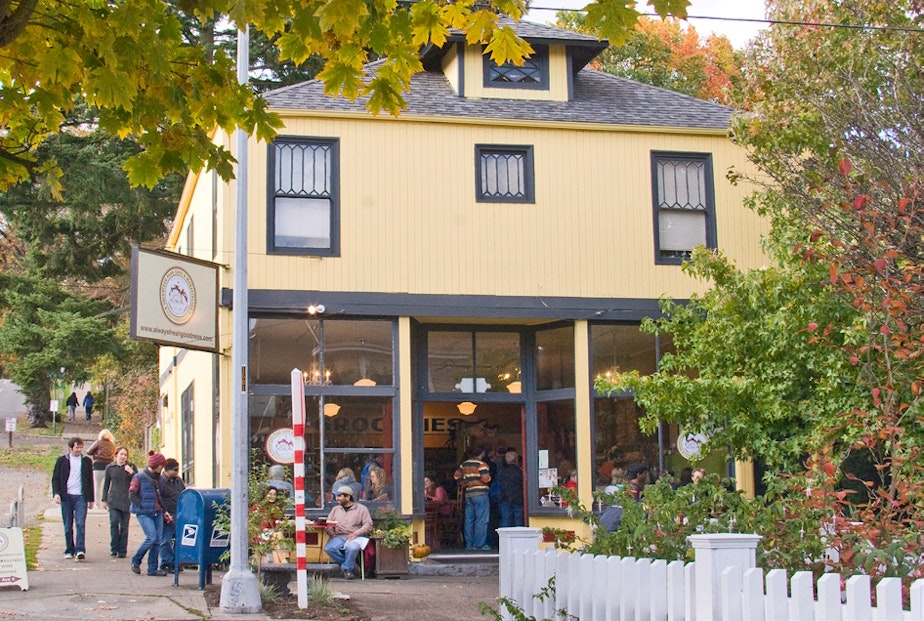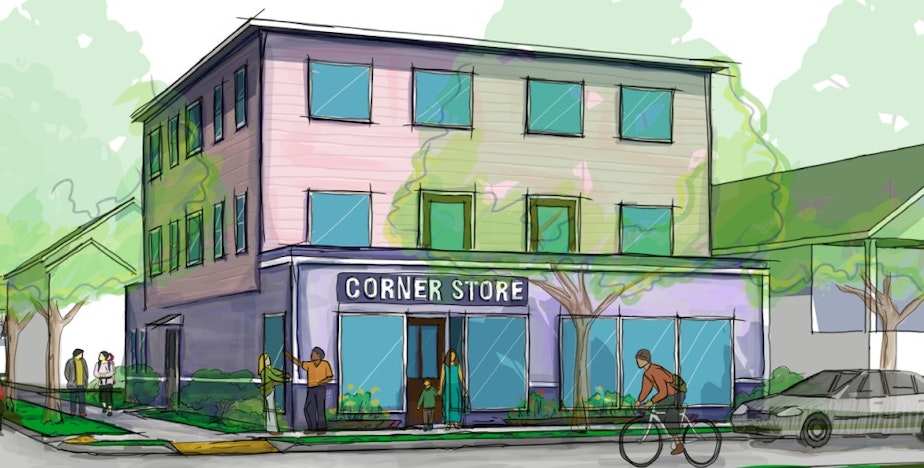Corner stores are the cornerstone of Seattle's quest to become a 15-minute city

A "15-minute city" is a city where the shops and restaurants you need are within a 15-minute walk of your home. That is Seattle's goal.
The city's new draft comprehensive plan includes a proposal to achieve that status, in part by reviving neighborhood corner stores.
The plan comes shortly after the death of a bill in Olympia that would have legalized corner stores statewide.
I
f you’ve walked through Seattle’s residential neighborhoods, you may have seen funky, older homes that look like they used to be restaurants or corner stores. They’re remnants of an era when homes and businesses used to butt up against each other.
Of the businesses that managed to hold on to old corner store locations, many have become beloved neighborhood institutions, like the Volunteer Park Cafe or Irwin's in south Wallingford.
But these survivors have been swimming against the tide. After World War II, Seattle, like many cities, decided homes and businesses should be kept apart.
But in low density zones, the clues of an earlier way of thinking are still there. Maybe a home has a big plate glass window right next to the sidewalk (with the windows drawn) — or a strange entry door diagonally situated, facing the street corner where sidewalks cross. These tell the story of a time when stores were within a short walk of every home.
Sponsored
In the years since corner stores fell out of favor, the economics of what will succeed in those spaces has changed. Today, large grocery chains negotiate special discounts on goods that put smaller grocery stores at an economic disadvantage.
This is one reason why many business locations evolved into awkward homes, where residents must keep the shades drawn to get a little privacy from passersby on the sidewalk.
RELATED: Will Seattle's new growth plan produce enough housing for newcomers?
Current zoning laws make it difficult to turn those homes back into businesses in low density residential neighborhoods. But Seattle's new draft comprehensive plan, released Tuesday, would allow those awkward apartments to become businesses again. It would also allow construction of new corner stores, though city officials say that will probably not happen often, for economic reasons.
Nevertheless, the new approach suggests that in the future, it’ll be easier for people to find hidden cafes and shops nestled among smaller homes.
Sponsored

You can read more about the city's plan for cornerstores on page 25 of this report, which highlights residential strategies in Seattle's draft comprehensive planl update.




